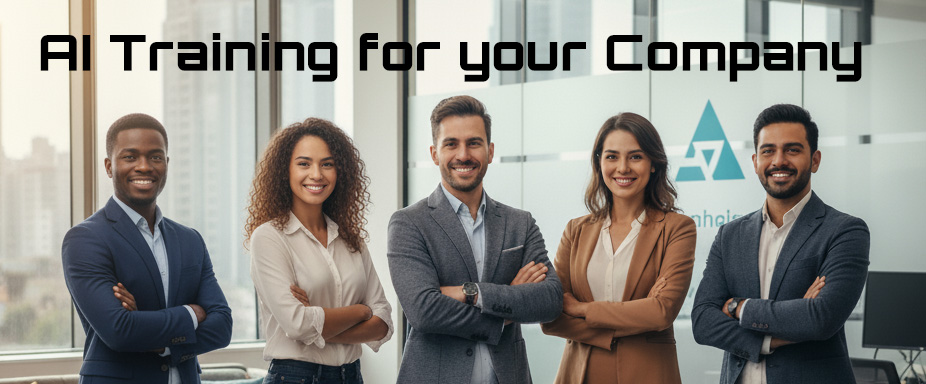AI Myths vs. Reality: Separating Fact from Fiction
AI is not without its problems but also is not without its opportunities. Let's look at some of the myths around AI.
Myth #1: AI has its own goals and is "out to get us." (The Terminator Myth)
The Reality: The fear of AI misuse is valid, but the danger isn't from the AI itself spontaneously developing evil plans. The danger comes from how humans might use this powerful tool.
That is where we come in. We are the drivers. We can, and must, create laws and regulations that ensure AI is not misused. Just as we have laws for how to operate dangerous machinery or handle sensitive data, we will have rules for AI. The goal is to ensure it is always used as a tool *for* intelligence, augmenting our abilities, not as an unaccountable replacement for human judgment and responsibility.
The problem is not the tool, it is just some people or companies will sell any type of AI just to make money. It is our job to limit this people, to make sure we have laws that protect humans from harmful AI.
Myth #2: AI is always accurate and unbiased.
The Reality: This is a critically important myth to bust. Because an AI can deliver information with such confidence, it's easy to assume it's always correct. This is false. AI models can and do make mistakes, a phenomenon often called "hallucination," where they invent facts, sources, or details that sound plausible but are completely wrong.
Furthermore, AI learns from the vast ocean of data created by humans. That data contains all of our own biases, both conscious and unconscious. The AI will inevitably learn and sometimes amplify these biases. If its training data historically underrepresents certain groups, its outputs may reflect that.
That is why there must always be a person checking what the AI produced and working with the AI. Unsupervised AI will always lead to a quality decline, be it in customer service, creative roles and others
Myth #3: AI is going to take all our jobs tomorrow.
The Reality: This is one of the biggest fears surrounding AI, but the reality is far more interesting and complex. History shows that technology transforms jobs rather than simply destroying them. There will be job transformation. Companies will need less people, but at the same time AI can help people create more companies.
Some jobs will be in greater risk of extinction like translators, copyrighters, language reviewers, tutors, and others.
The vast majority of jobs will require AI skills and will have to be AI augmented.
New jobs will be created, jobs like:
-
Solutions Integrator: This person's job is to take the AI's output and skillfully weave it into a specific context, aligning it with a company's unique strategy, voice, and existing systems. For instance there could be a Marketing Solutions Integrator, where the AI would provide marketing insights and solutions, and the integrator would ensure they can be implemented. Another example is a Cybersecurity Solutions Integrator, who would receive constant security and threat reports from the AI and integrate them into the company's security framework.
-
Process Steward: A person who designs a specific AI that handles a company or institutional process. This includes the architect who designs the prompts, the quality inspector who evaluates the output, and the project managers who remain accountable for the final product. There could be several in a company from someone who oversees a simple process, to someone who oversees an entire team of stewards. This would be AI orchestration which could be a big industry.
-
Cognitive Gyms: Research shows that over-reliance on AI can lead to "cognitive debt," where our own critical thinking and memory skills may weaken. This creates a vital new industry concerned with strengthen intelligence, from students to employees who need to sharpen their minds. Although intelligence will be abundantly available, only very skilled employees will be able to bring the best value from it.
Quick Check
According to the lesson, where does the real danger of AI misuse come from?

Recap: AI Myths vs. Reality
What we covered:
- Myth: AI has agency. Reality: AI is a tool with no desires; we are in control and responsible for its use.
- Myth: AI is always right. Reality: AI can be wrong ("hallucinate") and reflects human biases, so it must be fact-checked.
- Myth: AI will take all jobs. Reality: AI will transform the job market, destroying some jobs, creating new roles and changing existing ones, much like past technologies.
Why it matters:
- By clearing away the myths, we can have a more honest and productive conversation about AI. It allows us to focus on the real challenges—like ethics, bias, and regulation—and harness the real benefits of this incredible technology without unfounded fear.
Next up:
- We've covered a lot of ground in this first chapter. It's time to take a breath and consolidate our knowledge by Reviewing the Key Concepts of What is AI.


